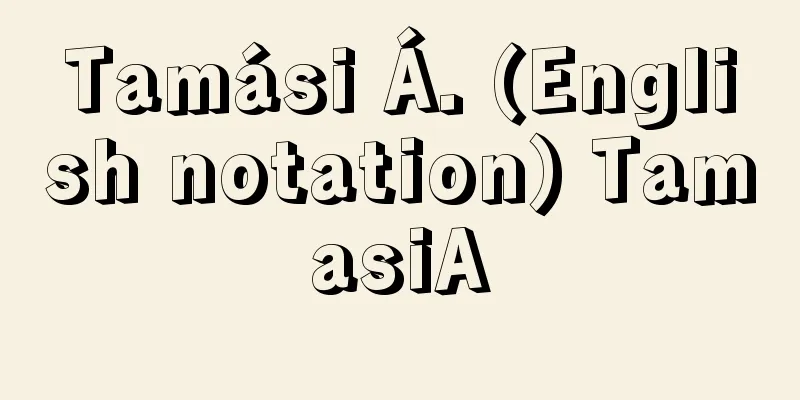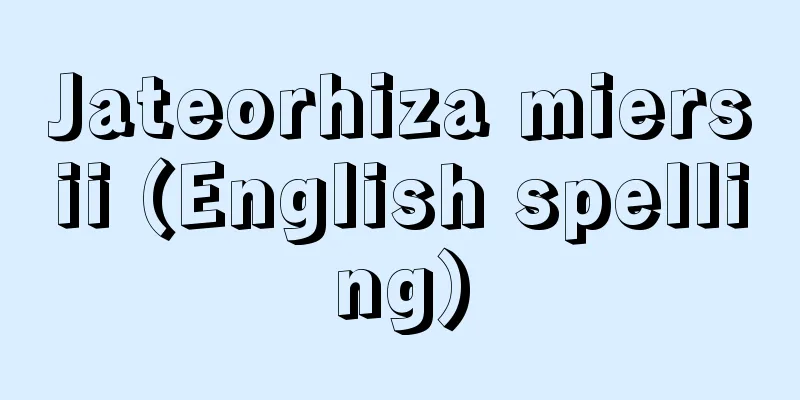Tamási Á. (English notation) TamasiA

|
...Radnóti Miklós (1904-1945), who died in a Nazi concentration camp, also wrote beautiful lyric poems. In the 1930s, Nyugat lost its literary power, and in its place peasant novelists such as Tamási Áron (1897-1966) and Kodolány János (1899-1969), centered around Jieš, became active and paved the way for a new peasant literature. *Some of the terminology explanations that mention "Tamási Á." are listed below. Source | Heibonsha World Encyclopedia 2nd Edition | Information |
|
…ナチスの収容所で死んだラドノーティRadnóti Miklós(1904‐45)も美しい抒情詩を書いた。30年代になると《ニュガト》が文学的力を失い,それに代わってイエーシュを中心とする農民派の小説家タマーシTamási Áron(1897‐1966),コドラーニKodolány János(1899‐1969)らが活躍し,新しい農民文学の道を開いた。 ※「Tamási Á.」について言及している用語解説の一部を掲載しています。 出典|株式会社平凡社世界大百科事典 第2版について | 情報 |
>>: țambal (English spelling) tambal
Recommend
Elevsís (English spelling) Elevsis
...Population 20,000 (1981). Also called Elefsís....
Numerical analysis - numerical analysis
Numerical analysis generally refers to methods for...
History of the old French political system
…His early work, La cité antique (1864), caused a...
Bothrops
…A general term for venomous snakes belonging to ...
Shuowen Jiezi - Shuowen Jiezi
A dictionary from the Later Han Dynasty in China....
SOFAR - Sofa
《 sound fixing and ranging 》A path through which s...
Gua
...Population: 72,000 (1982). The local name is G...
Joint - Goudou
A term used to describe the relationship between ...
Rock-cheeping bird - Rock-cheeping bird
A small orchid that grows on rocky cliffs along st...
Long-tailed tit - Long-tailed tit
A bird of the passerine family Long-tailed tit (il...
Masayo Asukai
A poet of the early Muromachi period. His first n...
Shishinden - Shishinden
[1] The name of a palace in the ancient Chinese im...
Phil Ochs
…used generally in the field of American folk son...
Rana brevipoda porosa (English name) Ranabrevipodaporosa
… [Takahiro Matsui]. … *Some of the terminology t...
Bartholin's gland
A cherry-sized secretory gland located on either ...




![Togatta [Hot Spring] - Togatta](/upload/images/67cc53f2bbe0e.webp)




